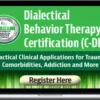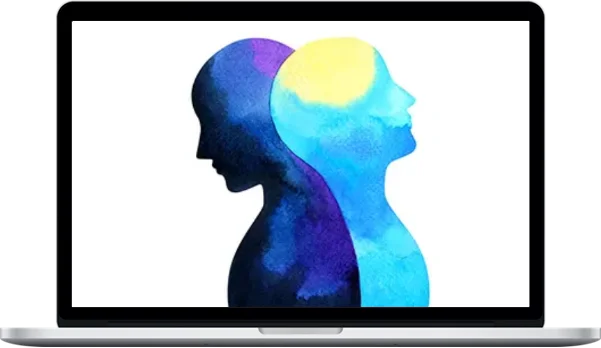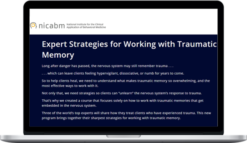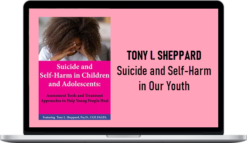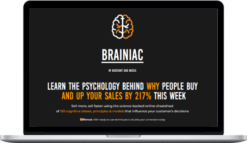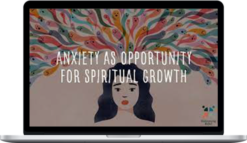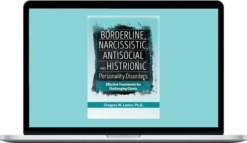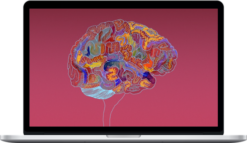Centre Of Excellence – Bipolar Disorder Awareness Diploma Course
$177.00 $33.00
»Delivery: Within 7 days
Description
Centre Of Excellence – Bipolar Disorder Awareness Diploma Course
What You’ll Learn In Bipolar Disorder Awareness Diploma Course
If you have bipolar disorder or hope to help someone who does, this course gives you a single, comprehensive resource that will enhance understanding and help those affected to lead healthier, happier lives. You will learn about the signs and symptoms, diagnosis and treatments, and how to manage bipolar disorder.
To understand bipolar disorder, you first need to address the issue of mental illness in general. Studying the Bipolar Disorder Awareness Diploma Course, you will learn what is meant by the term “mental illness”. The course covers who is affected, the most common forms of mental illness, why the notion of mental illness itself is sometimes called into question, and how it can be prevented. You’ll also be exposed to what the latest research suggests regarding the causes and prognosis of its various forms.
Bipolar disorder has many different forms and while the common thread is a tendency to experience mood swings, the variations differ in many important ways. Through your studies, you’ll discover the various types and gain an understanding of what they can mean for the sufferer and the symptoms and treatments of each.
The predominant opinion of psychiatrists is that bipolar disorder is caused, maintained and worsened by multiple factors. You’ll learn what researchers have discovered about links between various environmental and biological factors, and mental health.
Often referred to as “the rule rather than the exception”, a bipolar patient is usually diagnosed as suffering from two or more additional psychiatric disorders, though it can be diagnosed alone. The Bipolar Disorder Awareness Course explores the range of comorbid mental illnesses that often co-occur in those with bipolar disorder.
Part of the treatment of bipolar disorder is medication. This course looks at the most commonly prescribed drugs for the various forms of the condition, including how each works, how they are administered, possible side effects, effectiveness, and the risks of taking medication during pregnancy.
Treatment for bipolar disorder isn’t limited to medication, with other supportive measures in place to help those with the condition. One such treatment is psychotherapy, which encourages those with bipolar to discuss their mental health problems. Studying the Bipolar Disorder Awareness Diploma, you will learn more about what psychotherapy is, why it is used, who it may benefit, its specific application in bipolar disorder, and how effective it is.
The prevailing opinion within the medical profession is that bipolar disorder cannot be cured but its effects can be managed. While psychotherapy and medication are effective in reducing the severity of symptoms, it is in making day-to-day changes that a sufferer can prevent mood episodes and decrease the intensity of those that do occur. This course explores the steps that someone with bipolar can take to manage the symptoms of their illness. Such steps include managing diet, exercise, sleep patterns, social support and other lifestyle factors.
Bipolar disorder doesn’t just affect the lives of those with the condition but also their friends and family. This course talks about the common challenges faced by those close to someone with bi-polar disorder and how they can be overcome, including how to communicate effectively with someone experiencing symptoms of a mood episode, and the role of a crisis plan. The focus is not only on caring for the person with bipolar but also those in a caring role, who must ensure they look after their own wellbeing and lead a well-rounded lifestyle.
Bipolar disorder can be diagnosed at any age and is a long-term condition. This course looks at how it affects people at different ages and stages of life, covering the specific challenges faced by children, adolescents, young adults, middle-aged adults and older adults and how they can be helped to lead a life of the highest possible quality.
The Bipolar Disorder Awareness Diploma Course looks at the relationship between bipolar disorder and employment, the problem of discrimination, the issue of reasonable adjustments, and the most common problems faced by those with the illness. The course discusses how employers can foster an atmosphere of trust, openness and collaboration in the workplace and how this can be mutually beneficial.
Course Syllabus
What will I learn on the course?
Module 1: Bipolar Awareness
8 parts
- Part 1: What Is Mental Illness?
- Part 2: Common myths about mental illness
- Part 3: Are mental illnesses really “illnesses”?
- Part 4: What should we conclude?
- Part 5: How is mental illness treated?
- Test Your Knowledge
- Key Learning Points Exercise
- Module 1 Assessment
Module 2: The Different Types
8 parts
- Part 1: A quick note on terminology
- Part 2: The history of bipolar disorder
- Part 3: Is bipolar disorder a progressive illness?
- Part 4: Challenges in diagnosing bipolar disorder
- Part 5: Four key controversies relating to the diagnosis and treatment of bipolar disorder in children and adolescents
- Test Your Knowledge
- Key Learning Points Exercise
- Module 2 Assessment
Module 3: The Role Of Environmental And Biological Factors In Bipolar Disorder
7 parts
- Part 1: Background information – the nature – nurture debate in psychology
- Part 2: The role of parenting and family experiences in susceptibility to bipolar disorder
- Part 3: The role of social support as an environmental factor
- Part 4: Implications for the treatment of bipolar disorder
- Test Your Knowledge
- Key Learning Points Exercise
- Module 3 Assessment
Module 4: Associated Problems That Frequently Co-occur With Bipolar Disorder
6 parts
- Part 1: Anxiety disorders
- Part 2: Panic disorder
- Part 3: Antisocial Personality Disorder
- Test Your Knowledge
- Key Learning Points Exercise
- Module 4 Assessment
Module 5: Medication For Bipolar Disorder
6 parts
- Part 1: What types of drugs are used to treat bipolar disorder?
- Part 2: The dangers of combining drugs
- Part 3: Encouraging medication adherence
- Test Your Knowledge
- Key Learning Points Exercise
- Module 5 Assessment
Module 6: Psychotherapy for Bipolar Disorder
7 parts
- Part 1: What is psychotherapy?
- Part 2: The different schools of psychotherapy
- Part 3: What are the aims of psychotherapy?
- Part 4: Who can benefit from psychotherapy?
- Test Your Knowledge
- Key Learning Points Exercise
- Module 6 Assessment
Module 7: Lifestyle Strategies For Managing Symptoms Of Bipolar Disorder
8 parts
- Part 1: Diet and bipolar disorder
- Part 2: Sleep patterns and bipolar disorder
- Part 3: Exercise and bipolar disorder
- Part 4: Social support and bipolar disorder
- Part 5: Recreational drugs and alcohol use in bipolar disorder
- Test Your Knowledge
- Key Learning Points Exercise
- Module 7 Assessment
Module 8: Caring For and Understanding Someone With Bipolar Disorder
8 parts
- Part 1: How bipolar disorder can lead to problems within personal relationships
- Part 2: How partners, friends and relatives can educate themselves about bipolar disorder
- Part 3: How to communicate with someone who is experiencing a mood episode
- Part 4: Crisis plans
- Part 5: Acting as a carer for someone with bipolar disorder
- Test Your Knowledge
- Key Learning Points Exercise
- Module 8 Assessment
Module 9: Challenges For Those With Bipolar Across The Lifespan
8 parts
- Part 1: Problems faced by children diagnosed with bipolar disorder
- Part 2: Problems faced by adolescents diagnosed with bipolar disorder
- Part 3: Problems faced by young adults diagnosed with bipolar disorder
- Part 4: Problems faced by middle-aged adults diagnosed with bipolar disorder
- Part 5: Problems faced by older adults diagnosed with bipolar disorder
- Test Your Knowledge
- Key Learning Points Exercise
- Module 9 Assessment
Module 10: Bipolar and the Workplace
7 parts
- Part 1: The risks associated with unemployment
- Part 2: Steps employers can take to improve the experience of work for those with bipolar disorder
- Part 3: How to support a friend or colleague who is experiencing mental illness
- Part 4: Self-employment for people with bipolar disorder
- Test Your Knowledge
- Key Learning Points Exercise
- Module 10 Assessment
Who Would Benefit from This Course?
This course is designed to provide those who have bipolar disorder with actionable management techniques that can be applied holistically into daily life. It will also be useful to those who have someone in their life with the condition, in order to better understand it and them.
If you are a therapist or work in a position of care with those living with bipolar disorder, this course will give you greater insight into bipolar, what it’s like to live with it, and the techniques that can be used to lessen its effects.
About Centre of excellence
Here at Centre of Excellence we are supremely proud to be at the heart of a vibrant community of hard-working students. The determination and enthusiasm of our students never ceases to impress us and there is nothing better than seeing our graduates go on to succeed in further education, work, business or just life in general!
More courses from the same author: Centre of Excellence
Delivery Policy
When will I receive my course?
You will receive a link to download your course immediately or within 1 to 21 days. It depends on the product you buy, so please read the short description of the product carefully before making a purchase.
How is my course delivered?
We share courses through Google Drive, so once your order is complete, you'll receive an invitation to view the course in your email.
To avoid any delay in delivery, please provide a Google mail and enter your email address correctly in the Checkout Page.
In case you submit a wrong email address, please contact us to resend the course to the correct email.
How do I check status of my order?
Please log in to HealthcareCourse account then go to Order Page. You will find all your orders includes number, date, status and total price.
If the status is Processing: Your course is being uploaded. Please be patient and wait for us to complete your order. If your order has multiple courses and one of them has not been updated with the download link, the status of the order is also Processing.
If the status is Completed: Your course is ready for immediate download. Click "VIEW" to view details and download the course.
Where can I find my course?
Once your order is complete, a link to download the course will automatically be sent to your email.
You can also get the download link by logging into your HealthcareCourse account then going to Downloads Page.
Related products
Total sold: 4
Total sold: 2
Total sold: 1

